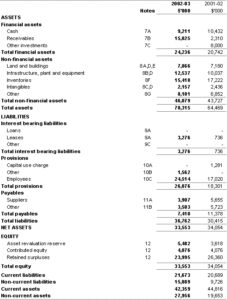Content
Goodwill is an intangible asset that can relate to the value of the purchased company’s brand reputation, customer service, employee relationships, and intellectual property. A firm that has been serving society for a number of years has more satisfied customers, a strong brand name, improved customer services, etc. Therefore, an older business unit will have a strong customer base and a high reputation in the market compared to newly established units. Customer goodwill is an intangible asset that businesses obtain through providing consistent, high-quality customer service. It accounts for non-quantifiable returns that are difficult to measure and categorize, like customer loyalty, brand reputation, and customer value.
- Companies assess whether an impairment exists by performing an impairment test on an intangible asset.
- Customer goodwill is an intangible asset that businesses obtain through providing consistent, high-quality customer service.
- Amalgamation is a condition under which two or more firms are combined to form a new entity.
- These examples are programmatically compiled from various online sources to illustrate current usage of the word ‘goodwill.’ Any opinions expressed in the examples do not represent those of Merriam-Webster or its editors.
- A profit trend of a firm depends on a number of business factors, like a boom period, efficient management, product trends, service quality, etc.
Goodwill that is tied to the owner and not the business is called personal goodwill, which is not transferable and has little or no commercial value. Goodwill that can be transferred to a buyer has commercial value and, therefore, is usually paid up for by buyers. This article contains general legal information Goodwill Definition but does not constitute professional legal advice for your particular situation. The Law Dictionary is not a law firm, and this page does not create an attorney-client or legal adviser relationship. If you have specific questions, please consult a qualified attorney licensed in your jurisdiction.
Words Near Goodwill in the Dictionary
Goodwill has an indefinite life, while other intangibles have a definite useful life. The value of a company’s name, brand reputation, loyal customer base, solid customer service, good employee relations, and proprietary technology represent aspects of goodwill. When a new partner enters the firm, generally the existing partners have to surrender some of their shares in favour of the new partner. Besides this, the new partner also enjoys a ready-made reputation in the market. Goodwill represents the value of the intangible assets acquired in a business acquisition.

In simple words, Goodwill is a monetary value of a reputation of a business firm in the market, earned by the owner through his/ her hard work and best quality service. Goodwill of the firm enables the firm to earn supernormal profit in the long run and increases its competitiveness in the market. Goodwill of any business unit is an outcome of the satisfaction of its customers, good employee relationships, a strong consumer https://kelleysbookkeeping.com/ base, a big brand name, and so on. Goodwill is an asset that does not depreciate, but its value fluctuates depending on the earnings of the firm, i.e., the value of the goodwill declines with a decline in the earnings. It should, however, be noted that goodwill is an intangible asset and not a fictitious asset as fictitious assets do not have value, but goodwill always has value in relation to profit-making concerns.
Origin of Goodwill
It doesn’t matter if you’re selling retail products, B2B software, or a subscription service, product quality is the most reliable way to build goodwill. If your product is superior to your competitors, customers will be hesitant to abandon you, even if you make a few small mistakes. Goodwill plays an important role in your long-term relationship with customers. This not only keeps your customers engaged with your products and services but also provides a safety net in case your business makes a mistake. The value of goodwill is highly subjective, especially since it does not independently generate cash flows. Consequently, the accounting standards require that an acquirer regularly test its goodwill asset for impairment, and to write down the asset if impairment can be proven.

Moreover, a business that uses advanced technology for production has a high-profit margin, as the cost of production decreases. Such increased repetition and high profit boost the value and goodwill of the firm. The nature of the business firm highly affects the goodwill of the business unit. If the firm enjoys monopoly rights in a market, there is an assured profit earning, as there is no competition in the market. On the other hand, in a competitive market, every firm has to work harder every day to build a reputation in the market.
What Does Goodwill Mean?
As a result of this, the continuing partners shall pay the compensation to the retiring partner in the proportion of the value of the goodwill of the firm. Hence, the valuation of goodwill becomes necessary in case of the retirement of an old partner. Such capital investment by a firm indicates a strong financial position, which builds up the reputation of the firm in the eyes of the stakeholders.
It’s also important to note that negative goodwill is a possibility for any acquisition, occurring when the target company will not negotiate a fair price. Sometimes, when a company that was successful is facing insolvency, goodwill is removed from any determinations of residual equity. This is because at the point of bankruptcy/insolvency, the “goodwill” that the company once had is no longer of any value. While companies will follow the rules prescribed by the Accounting Standards Boards, there is not a fundamentally correct way to deal with this mismatch under the current financial reporting framework. Therefore, the accounting for goodwill will be rules based, and those rules have changed, and can be expected to continue to change, periodically along with the changes in the members of the Accounting Standards Boards.
For instance, if company A acquired 100% of company B, but paid more than the net market value of company B, a goodwill occurs. In order to calculate goodwill, it is necessary to have a list of all of company B’s assets and liabilities at fair market value. Under U.S. GAAP and IFRS, goodwill is never amortized, because it is considered to have an indefinite useful life.
- Goodwill is an asset that does not depreciate, but its value fluctuates depending on the earnings of the firm, i.e., the value of the goodwill declines with a decline in the earnings.
- After all, when reading a company’s balance sheet, it can be very difficult to tell whether the goodwill it claims to hold is in fact justified.
- Using the income approach, estimated future cash flows are discounted to the present value.
- Goodwill is an intangible asset that represents the market value of a business firm.
- All content on this website, including dictionary, thesaurus, literature, geography, and other reference data is for informational purposes only.
The amount of goodwill is calculated by first determining the enterprise value of the business, and then deducting the tangible net assets. The two commonly used methods for testing impairments are the income approach and the market approach. Using the income approach, estimated future cash flows are discounted to the present value. With the market approach, the assets and liabilities of similar companies operating in the same industry are analyzed.
Limitations of Goodwill
Hence, a competing firm has a low value of goodwill compared to a monopoly firm. Negative goodwill arises when an acquirer pays less for an acquiree than the fair value of its assets and liabilities. This situation usually only arises as part of a distressed sale of a business. After all, when reading a company’s balance sheet, it can be very difficult to tell whether the goodwill it claims to hold is in fact justified. For example, a company might claim that its goodwill is based on the brand recognition and customer loyalty of the company it acquired. The valuation of goodwill is done when a business firm is been sold, to accurately calculate the purchase consideration of the firm, i.e., the actual amount which has to be paid or received while selling the firm.
There’s a significant difference between goodwill and other intangible assets, such as a patent, intellectual property, or research and development. As such, it can’t be bought or sold independently, unlike intangible assets such as copyright, for example. In addition, other intangibles are classified as “definite” as there’s a foreseeable end to their useful lives, whereas goodwill is “indefinite”. When you acquire a new business, you’re not just purchasing their contracts, equipment, real estate, and inventory. You’re also purchasing those crucial assets that are more difficult to put a price tag on, such as the brand name, location, and customer base.